Brand Alphabet
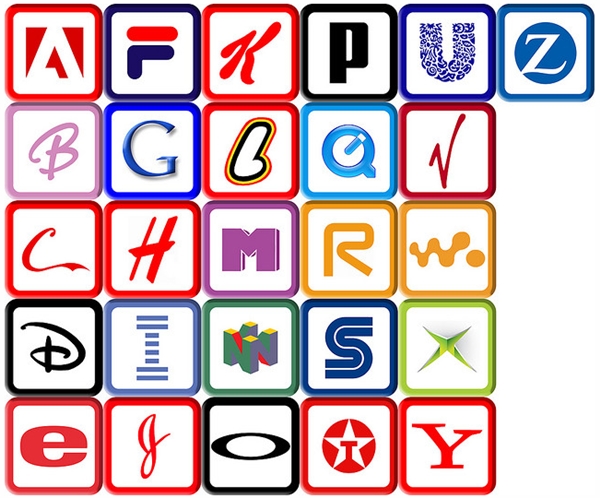
By William Arruda
![]() The benefits of having a strong brand are tremendous. Strong brands charge premium pricing; they thrive during economic downturns; they attract valuable employees, business partners, and customers; and they can extend into new business areas with ease. Every company, product, city, or even person can reap these benefits if they focus on building and maintaining their brands.
The benefits of having a strong brand are tremendous. Strong brands charge premium pricing; they thrive during economic downturns; they attract valuable employees, business partners, and customers; and they can extend into new business areas with ease. Every company, product, city, or even person can reap these benefits if they focus on building and maintaining their brands.
In a previous MarketingProfs article, I wrote about the “Three Cs of Branding.” It was by far the most popular of all the articles I have written for the site—nearly 300,000 people have read it. The three Cs that I referenced in that article are among the most important and are also among the most challenging to implement; but there are some other Cs that are critical to branding as well.
When I deliver my workshop “You Can’t Spell Brand without the Letter C,” I actually cover the 10 Cs of successful branding. In building and nurturing a strong brand, you have a lot more to think about than these 10 Cs; but no brand is truly a strong brand if it doesn’t pass the Ten C Test. So whether you’re managing your company’s brand or building your own personal brand, think about these 10 Cs:
1. Competent
All brands begin with competence. Although a rational brand attribute, it is the table stakes that gets you into the game. You aren’t going to get too far with branding if your product or service cannot fulfill its promise. Just as people who cannot hold a note don’t make it past the first round on Pop Idol, you can’t build a brand around ineptitude.
When IKEA first launched in Sweden, its furniture was well designed, but of poor quality. It did not have a solid brand. Then, after years of refinements, it started to produce much-higher quality products, still at affordable prices. Now, their kitchens are considered to be of very high quality while remaining inexpensive and fashionable.
Competence is the first C. If you don’t have a solid product or service, you are wasting your efforts branding it.
2. Credible
Not only do your products and services need to be solid, you need to be believable in delivering them. You need to be true to your core values and deliver on them in everything you do.
Although it could certainly produce a couture collection of clothes, the Gap would not be credible in extending its line to compete with Valentino and Dior on the runways of Paris. Starbucks, on the other hand, is a credible partner for Krups with its espresso machines. Starbucks knows something about coffee, so this offering is believable.
3. Clear
Strong brands are clear about what they are and what they are not. They understand their unique promise of value—and this promise sets them apart from their competitors. It differentiates them and allows them to attract and build loyalty among a desirable set of consumers.
Volvo, for example, is clear about its commitment to safety and security. The brand is not about speedy sports cars, or small economy cars, or luxury cars. Its clarity separates it from many less successful competitors that are trying to be all things to all people.
4. Compelling
A strong brand is appropriate for—and interesting to—its target audience. It is relevant. It knows who to focus on and gets that audience passionate about what it has to offer.
Ritz Carlton does not go after young trendy professionals, just as W Hotels knows that its promise is less compelling to older, more conservative people. I once spoke with a retired Army officer on a plane about W Hotels. He was telling me about his experience. He said the elevator lighting was so dim he thought the hotel was trying to conserve energy, and he found all the people dressed in black, including the housekeeping staff, “depressing.”
5. Consistent
In addition to being clear about who they are, strong brands are also consistent. They are always what they say they are. In everything they do, they bolster their brand attributes.
Madonna is the chameleon brand of entertainment. She reinvents herself with each CD that she produces. She didn’t change for her first five CDs and then stay the same for the next two. She consistently changes.
And the one thing we can be sure of with regard to her upcoming CD is that it will be nothing like any of the others she has done before. Madonna’s ability to change consistently throughout her career separates her from other entertainers, thereby strengthening her brand.
6. Constant
Strong brands are constant; they are always visible to their customers and prospects. They don’t go into hiding.
For Coke, the world is the target market. That is why you can’t make it through a day without being exposed to its bright red color or familiar script logo. Vending machines, people carrying a coke as they walk down the street, restaurant menus, product placement in TV shows and movies, billboards and print and TV advertisements all scream COKE.
Chances are, your brand’s target market is a lot smaller than Coke’s. And that is good news, making it easier (and a lot less expensive) for you to remain constantly visible to your target audience.
7. Confident
Confidence is attractive and it is an attribute of all strong brands. Strong brands are not wishy-washy. They make decisions with conviction and deal with the consequences. They have a vision and believe that the vision can become reality.
Marriott was confident in their decision to go no-smoking. They instituted the policy world-wide – taking a stand and attracting attention. Strong brands aren’t bashful. They are confident and that confidence permeates the entire organization.
8. Connected
A strong brand is part of various appropriate communities. This means having a network of partners, colleagues, and customers. It means developing affiliations and partnerships that reinforce your brand. It means working with your supply chain. It means having a corporate social responsibility program (or personal social responsibility program for personal brands) to connect to the appropriate causes. It means having a following of loyal brand ambassadors who become your extended sales force.
Apple computer is connected to all the right communities, and it has established emotional connections with its employees, customers, and partners. You need only speak with someone who has a Mac or an iPod to see the depth of the connection.
9. Committed
A strong brand is in it for the long haul. Branding is not a one-time event; it’s not about fads. Strong brands are built over time and require steadfast commitment to ensure long-lasting success. The strongest brands in the world have either been around for a long time (Coke, GE) or they are planning to be here for a long time to come (Google, Amazon, Microsoft).
IBM has earned our trust through consistently delivering on its brand promise for decades. McDonalds has done the same.
Brand value builds over time through consistently living the brand promise. Strong brands plan to be here for the long term and make strategic decisions accordingly.
10. Current
Strong brands are based in today, with room to evolve for tomorrow. Although based in authenticity, there is an aspirational element to branding. Just as Starbucks has the vision of being the “third place” (home, office, Starbucks) and is working to turn that vision into reality, you too must focus your brand on the future.
You must remain relevant to your target audience and become relevant to new target audiences as the world demographics change. The only constant is change. Don’t let your Brand be stuck in the past; ensure it remains relevant and compelling.
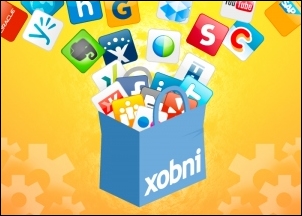 Xobni, the relationship management service that helps people search and manage all their contacts and communication, today announced the new Xobni Gadget Platform and Store. The Gadget Store (http://www.xobni.com/gadgets) gives users direct access to leading productivity products, services and applications in Xobni for Outlook. Xobni for Outlook is the first desktop-based OpenSocial container, and it allows developers to integrate their services seamlessly into the email workflow.
Xobni, the relationship management service that helps people search and manage all their contacts and communication, today announced the new Xobni Gadget Platform and Store. The Gadget Store (http://www.xobni.com/gadgets) gives users direct access to leading productivity products, services and applications in Xobni for Outlook. Xobni for Outlook is the first desktop-based OpenSocial container, and it allows developers to integrate their services seamlessly into the email workflow.
Gadgets are now included as part of the Xobni sidebar, a leading Microsoft Outlook plugin with nearly seven million downloads. The Xobni Gadget Store includes free and paid gadgets ($9.99/year and 30 day free trial) and lets users choose from nearly 20 services and applications, including web-based document sharing, lead tracking, issue reporting and monitoring, note-taking, and more – all without leaving the inbox.
* Productivity Gadgets: Dropbox, Evernote, GoldMail, Google Translate, Atlassian JIRA, WebEx
* Collaboration Gadgets: Huddle, Microsoft SharePoint, Salesforce Chatter, Yammer
* Content Gadgets: Facebook, Flickr, Hoover’s, Klout, LinkedIn, Twitter, Xing, YouTube, Yelp
* CRM Gadgets: Salesforce CRM
Xobni (“inbox” spelled backwards) is a San Francisco-based relationship management service that enhances productivity in the workplace. The Xobni service creates robust profiles by combining individual email/phone/text exchanges with social media content (Facebook, LinkedIn, Twitter, etc.) to give users a complete 360-degree view of all their contacts and personal networks. These profiles are connected and made available across various devices and platforms, including Outlook, Gmail, BlackBerry, and soon Android and iPhone. Xobni offers a free product suite across all platforms, and has been downloaded over 6 million times. Xobni’s new full-featured premium product — Xobni Pro — connects these profiles in the cloud across Outlook, webmail and mobile platforms to provide a seamless and comprehensive contact management solution. Xobni is funded by Khosla Ventures, RRE Ventures, Cisco Systems, BlackBerry Partners Fund, First Round Capital and others.
In the shadow of Facebook, the leaders of professional networking, are waging a fierce battle and some are preparing their IPO. Viadeo started the war by opening an office in San Francisco in March 2011, Linkedin responded by launching their activities in France. Xing, smaller in size than the other 2 leaders, is stable in its German territory and Spain after acquiring eConozco and Neurona in 2007.

The 3 players are seeing their worldwide growth based on global bad economies and high unemployment rates and job seekers.
But newcomers like BranchOut might spoil the party, counting on the 600 million Facebook users to create their niche network. You can simply sign in using your Facebook credentials, where it will pull your professional information then ask you to pick friends with whom you would like to work.
Branchout launched in January 2011 with 10,000 users, early March the number of users went up to 435,000.
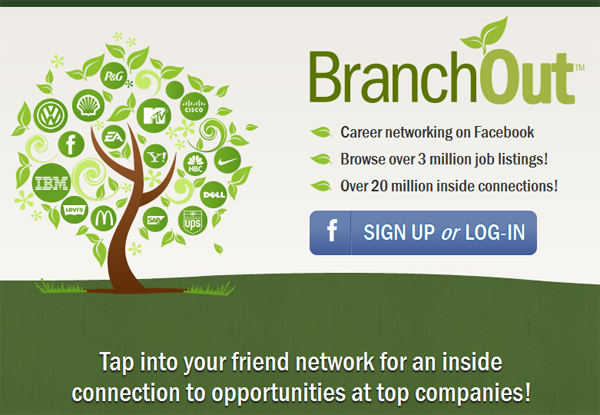
On a separate note, when networking websites, social or professional, publish their users figures, I always wonder about the number of “sleeping accounts” or users having multiple accounts for a reason or another, a fact that no one, mention almost anything about it.
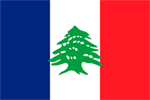 We, the Lebanese, have a special feeling for France. We always considered her, “our caring mother” And there is not one living Lebanese who won’t consider visiting Paris at least once in his lifetime. More than 50% of Lebanese speak French fluently. Lots of Lebanese own companies, businesses, flats and houses all over France. The French embassy in Beirut issues in non-stop mode visas to Lebanese and we have 4 daily flights between Beirut and Paris and most of these flights are fully booked.
We, the Lebanese, have a special feeling for France. We always considered her, “our caring mother” And there is not one living Lebanese who won’t consider visiting Paris at least once in his lifetime. More than 50% of Lebanese speak French fluently. Lots of Lebanese own companies, businesses, flats and houses all over France. The French embassy in Beirut issues in non-stop mode visas to Lebanese and we have 4 daily flights between Beirut and Paris and most of these flights are fully booked.
Having cited the above randoms facts out of my mind, i was surprised seeing the huge, i mean very huge investments France is making in the Middle East and North Africa, EXCEPT in Lebanon.
I was reading an article in L’expansion about the threats of revolutions in the MENA region and the presence of France, 3000 companies with investments of $45 Billion, but Lebanon was not mentioned in the article, or because it is the most stable country in the region for the time being *sarcastically*, either the investments of France are peanuts when compared to the rest of the countries.
I don’t want Lebanon to appear in the article because of the instability of the region, but just to be informed about the investments French multinationals are having in Lebanon. I can only recall 2 companies present in Lebanon related to the subject, they are Total and Air Liquide.
If you know any French companies operating in Lebanon, please comment and list them, also feel free to comment about any special facts that ties Lebanon to France.
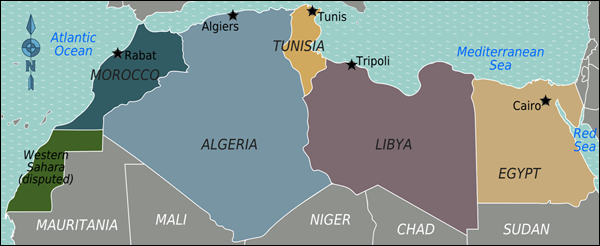
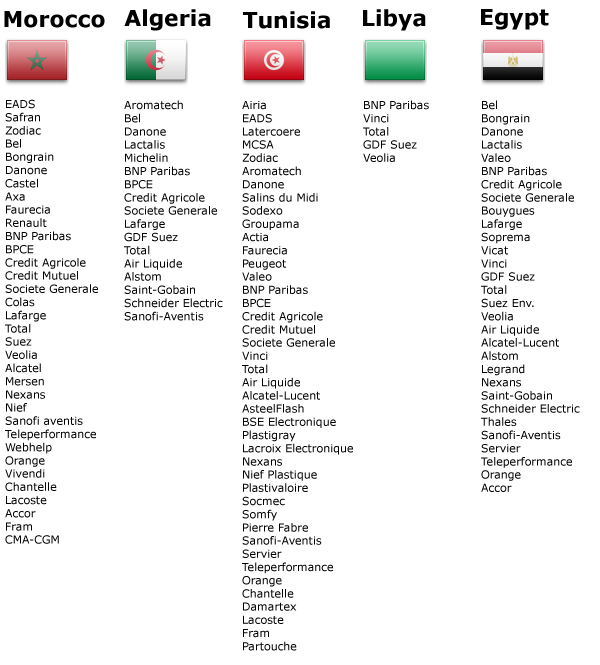
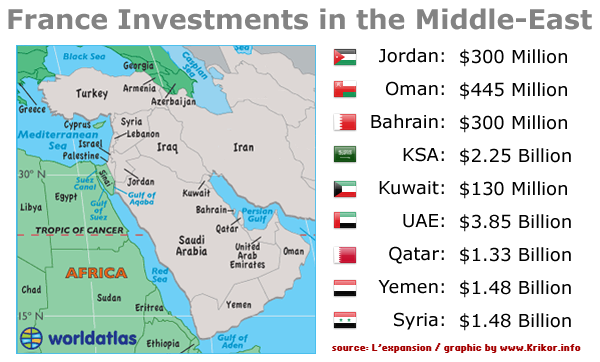
BIC ecolutions triple-blade shaver takes a step toward a cleaner environment without compromising product quality. It consistently delivers a close, smooth and comfortable shave. BIC ecolutions has a lubricating strip formulated with Aloe and Vitamin E to optimize shaving comfort. It is designed for normal and sensitive skin.
After five years of extensive research and development, BIC identified a natural renewable material (Bioplastic) from which they were able to produce our precision shaver handle without compromising our product’s quality. Bioplastic, a common name for PLA (Poly Lactic Acid), is made from corn without oil-based additives.
As a part of BIC’s eco-design process, they have reduced the packaging to the minimum size, while meeting their rigorous quality standards. Reduced package volume optimizes transportation and further lowers environmental impact.
All BIC ecolutions packaging is made of 100% recycled bleach free cardboard.